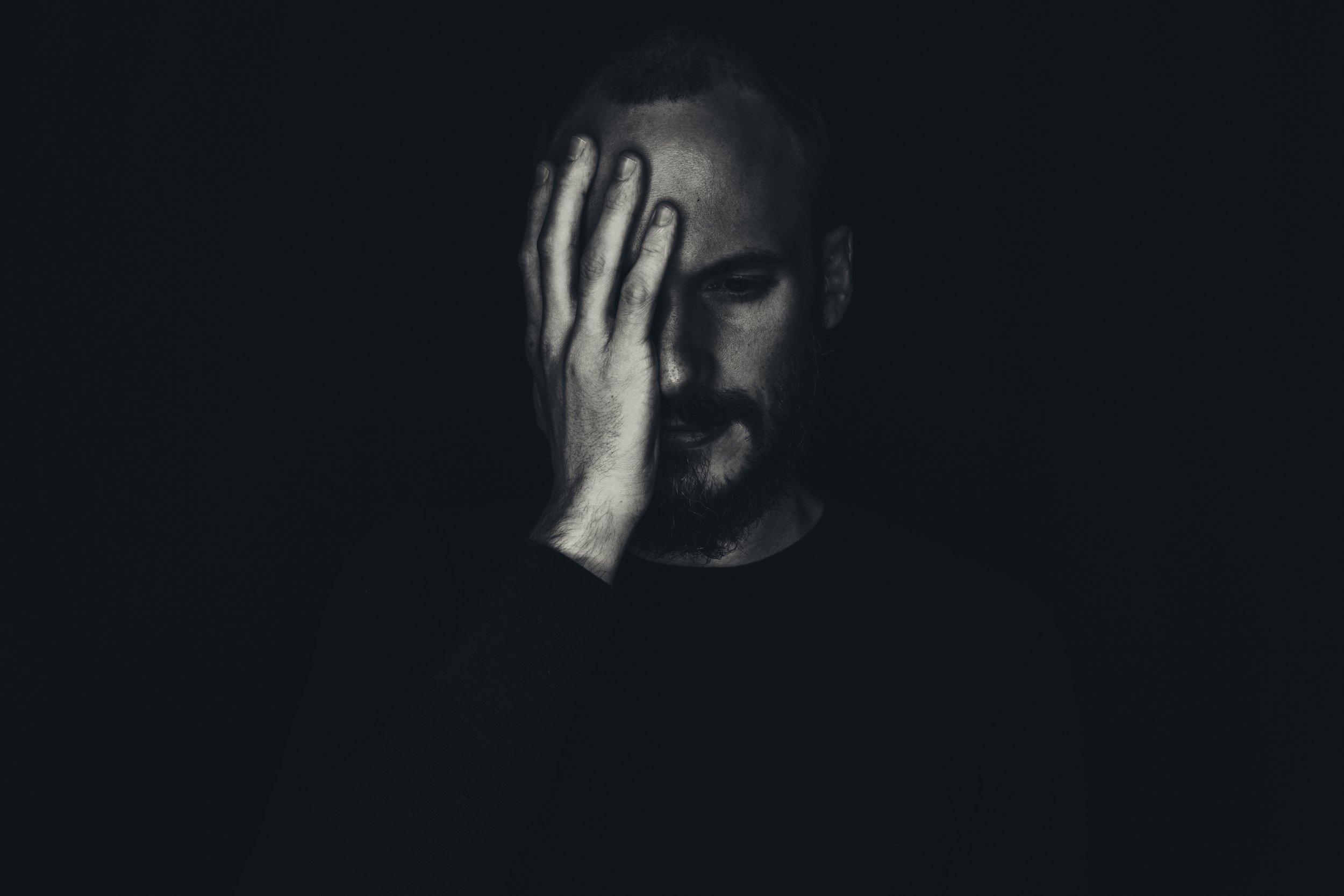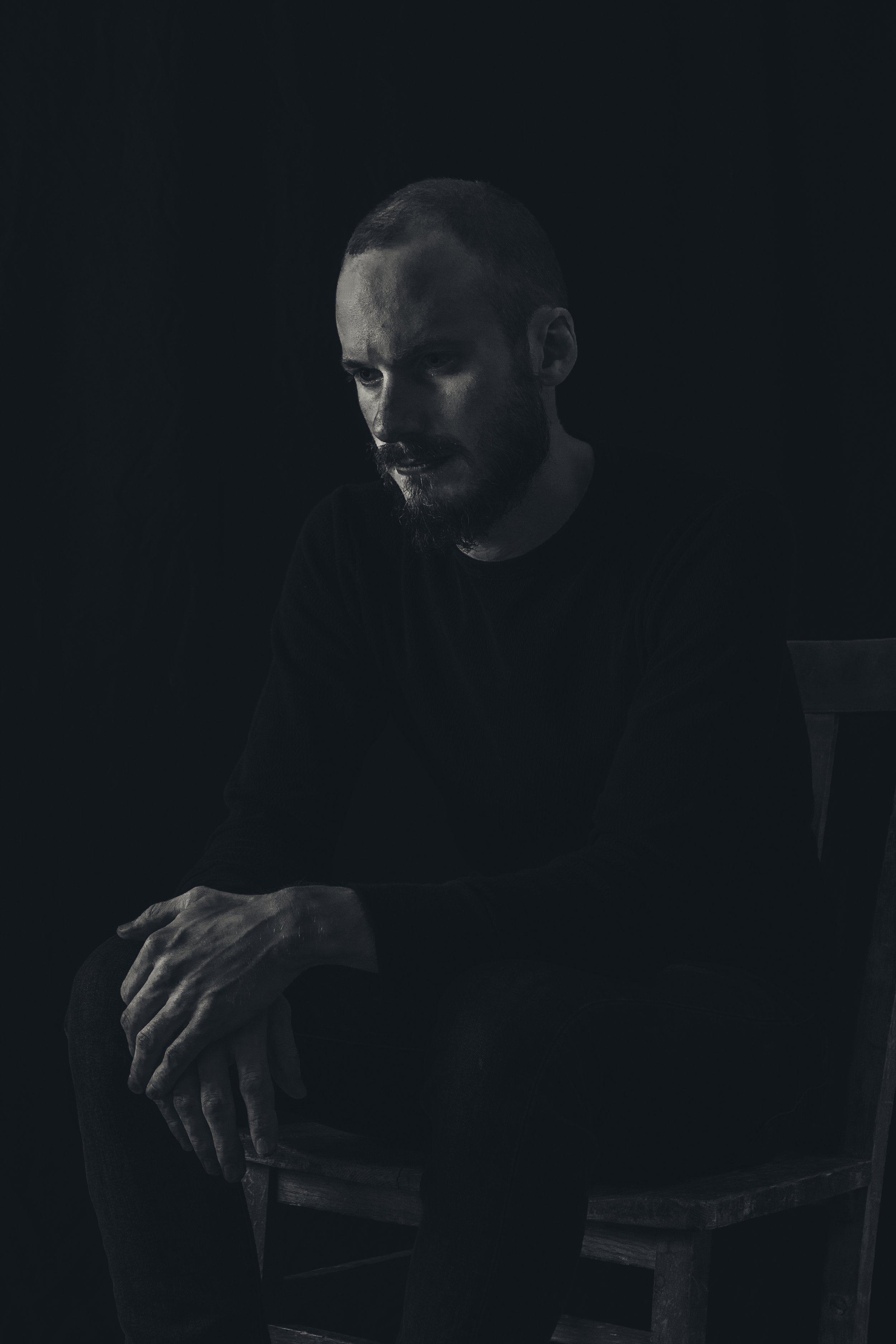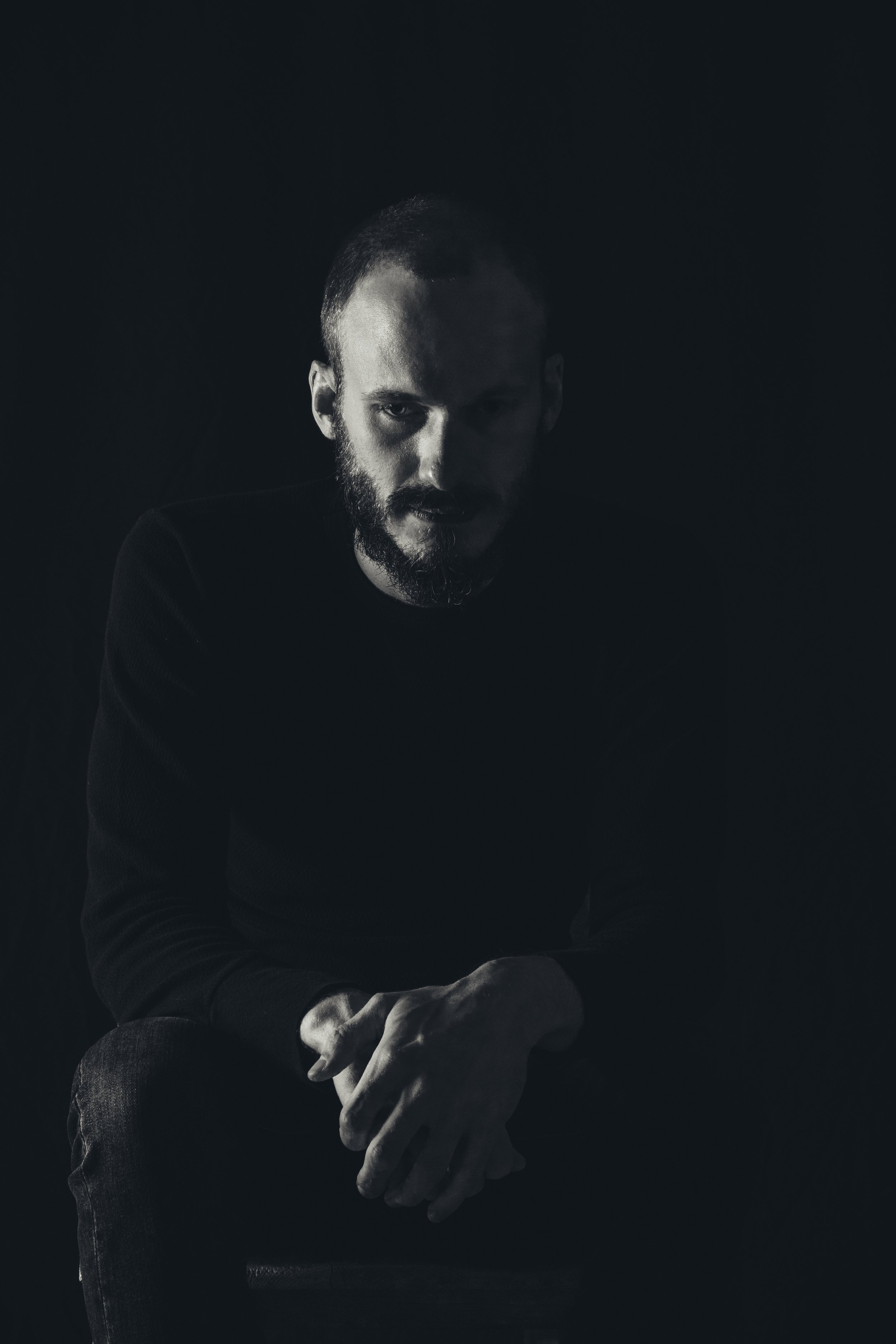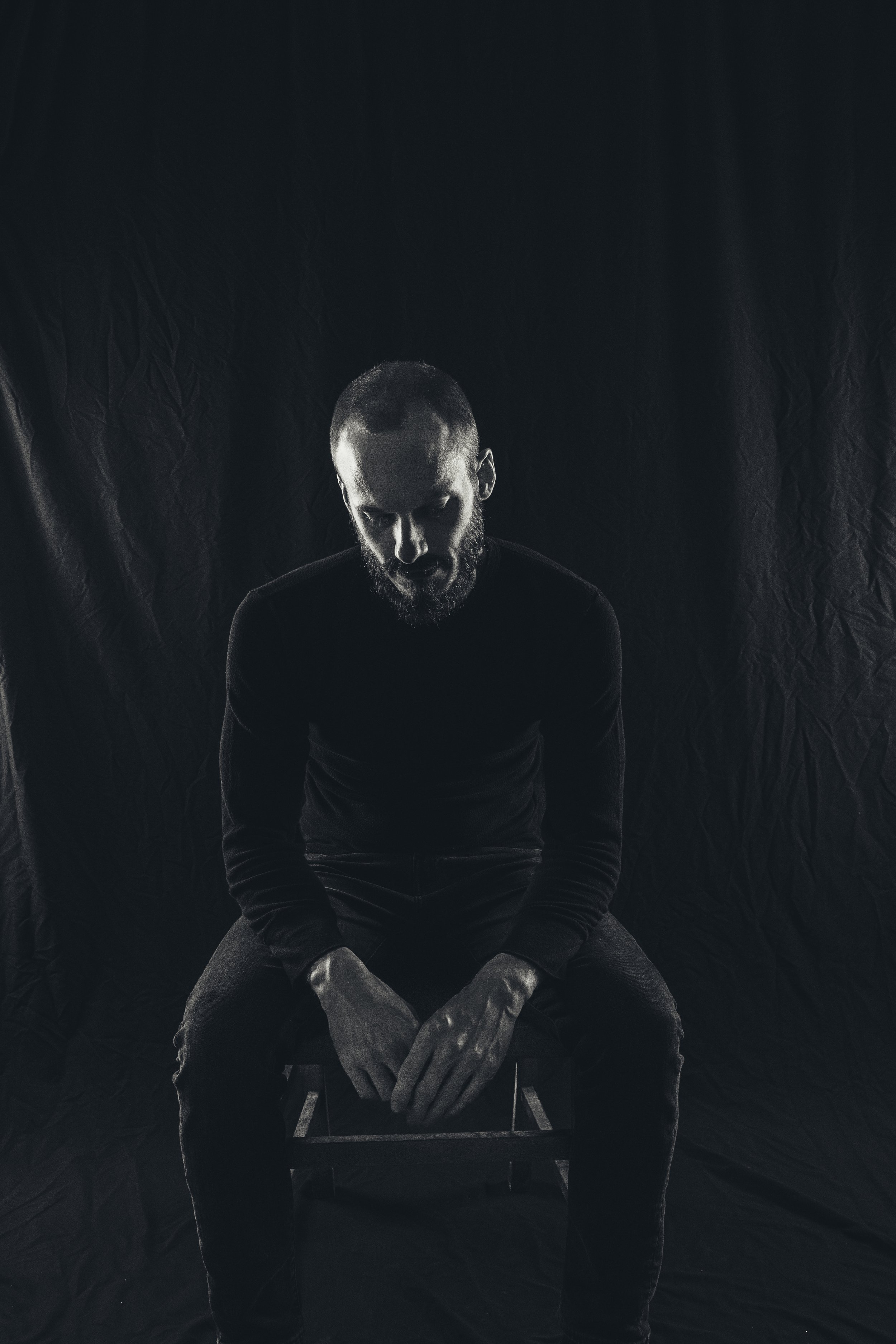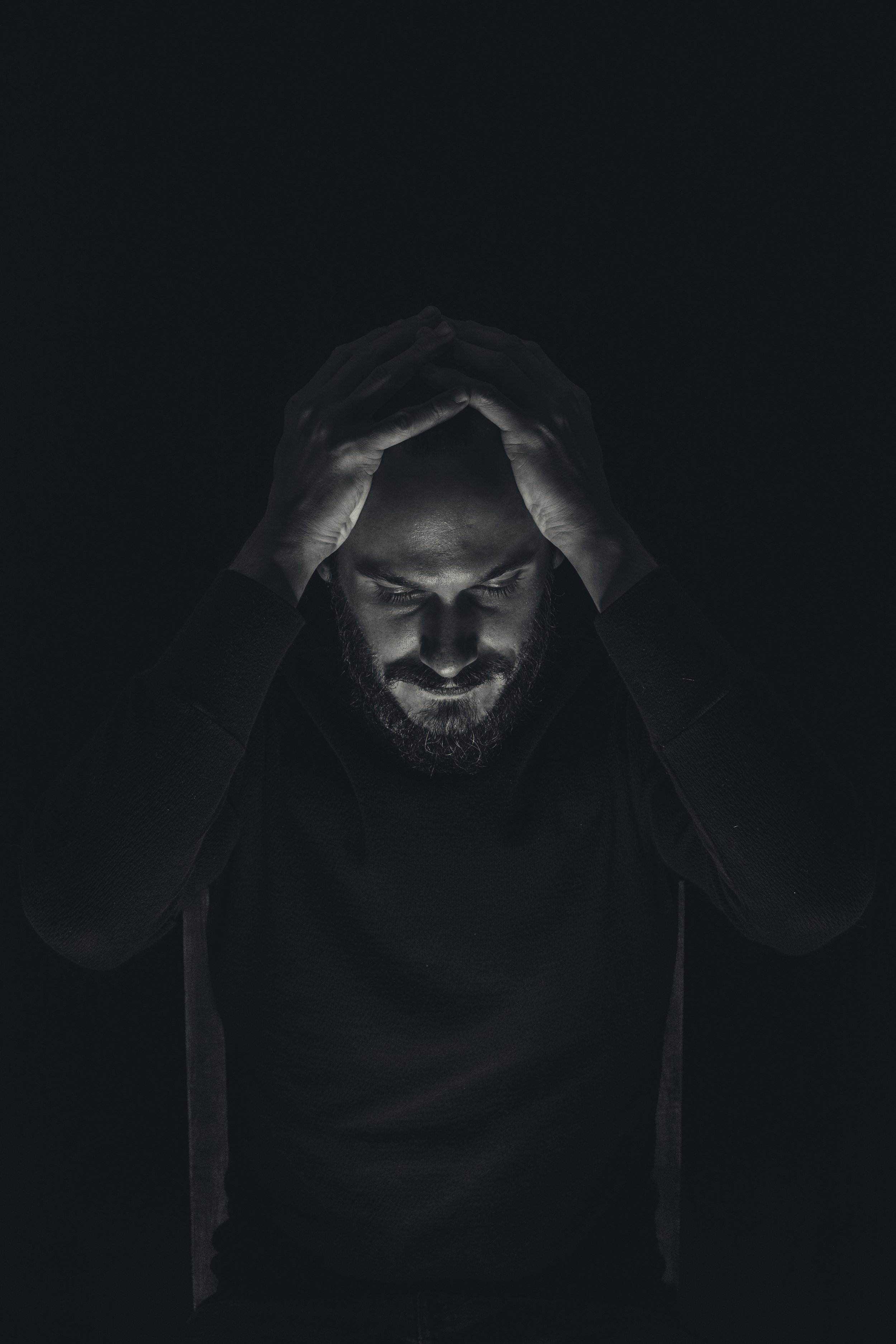Wit’s End: A Deep Conversation With Mizmor

Guest Photographer: Emma Ruth Rundle (Visual artist, guitarist, and singer-songwriter )
Words: Marika Zorzi
Portland, OR solo-outfit MIZMOR released Wit’s End in January via Gilead Media. Following MIZMOR’s critically acclaimed 2019 full-length, Cairn, Wit’s End shows raw power flowing seamlessly through songwriting mastery. Merging pitch-black doom laced with hauntingly emotive and ambient sentiments, glacial yet undulating soundscapes, and personal confessions of lost faith and the disenchantment of modern society, MIZMOR has created sonic compositions condemned with passages of shadowed, existential dread. We talked with A.L.N about Mizmor’s new album Wit’s End.
Mizmor’ s discography from 2012’s self-titled debut to 2016’s ‘Yodh’, and 2019’s ‘Cairn’ sounds like the path of a human being who is growing, evolving, and changing the way of seeing the world and his relation as an individual that is part of a multitude called society. At what stage of Mizmor/ALN’s journey does Wit’s End place itself?
Wit’s End is obviously the furthest point on my personal journey, which you have aptly sketched out. In particular, it is the beginning of my reflecting on society or humanity as a whole, and my place within it. I spent nearly a decade using Mizmor to wrestle through my loss of faith in god and have come to a genuine place of acceptance, healing, and growth. Though I will always carry a remnant of that pain with me, I am ready to move on and explore other topics with my art. Resolving this personal issue of mine has naturally led my focus outward. I’m still fascinated by god, faith, and religion, but I’m not as interested in talking about myself. My perspective has shifted to a more universal place. My negative experience with Christianity is just an example of the broader problems of faith-based thinking, dogma, and the abandonment of reason and science as our best tools for understanding the universe.
On Wit’s End it seems like you’re redirecting your frustration toward those who ignore facts, evidence, and science, choosing instead to just have faith that God will protect them. How difficult have the last two years been for you while we were watching humanity being so selfish but also showing gestures of disarming solidarity?
has been a frustrating and dumbfounding couple of years. Our handling of the pandemic was definitely a catalyst in creating Wit’s End. I see lots of foolishness and ignorance out there, and at a dangerous scale , which is enraging, but I also feel sympathy. As a society we are being radicalized and polarized by the way we receive information and communicate with one another, namely the internet and social media. These are powerful tools with benefits, no doubt, but also plenty of negative consequences. We now live in a fractured reality, each person in their own echo chamber of like-minded individuals, and unless you are rigorous in how you vet and accept information, you will be easily hoodwinked by provocative narratives amplified by algorithms. All this to say, there is a sense in which people are victims of catchy ideas infesting their minds. For the most part, everyone is doing their best to make the right decision for themselves and their families. I think what’s happening is incredibly unfortunate, sad, dangerous, and downright stupid at times, but I also just feel bad for people that are failing to adequately use critical thinking skills for the benefit of not only themselves, but everyone. If only empiricism, evidence-based understanding, reason, and the scientific method were popular the world would be a better place.
This album was inspired by The Great Filter within the Fermi Paradox and there isn’t a new Mizmor album without some philosophy involved! The Great Filter theory suggests that all life must overcome certain challenges. What do you think is the greatest challenge for you as a human being who has happened to live in today's pre/post pandemic society?
My postulation in regards to The Great Filter and Wit’s End is that consciousness is the difficult part for life to get past on its way to populating other planets - that consciousness, however ubiquitous, is inherently self-destructive in one way or another and destroys life before it can escape. On a personal level, something that’s been incredibly difficult for me during this time has been having fewer and fewer shared values with family, friends, and society as a whole. At this point I think everyone has at least one person in their lives that they can’t really openly converse with anymore. Everything has become political and the rift between us has grown enormously. As the spoken word segment of Wit’s End refers to, I’ve spent so much time changing and curating my mind to be an accurate reflection of the world I experience in a way that I feel has had a really positive outcome for myself and those around me. This process took close to a decade (and is never really over) and involved me changing my entire Christian worldview. It was painful; so many things are tied up in that… it’s everything really. As I let go of the stronghold of dogma in my mind and allowed genuine curiosity and scientific evidence more ground, I slowly ended up becoming an atheist. But the important part is, my values began to change. A lot of people think atheists must be detestable pessimists with no morals, but this couldn’t be further from the truth for me. I began to value science greatly, as the chief informer in my world. This led me to a new understanding of morality, increasing my empathy and compassion for other people. It’s been so frustrating to have worked so hard to change myself for the better only to look out into a world that seems to be regressing into more and more dogmatic, close-minded, superstitious, and tribal ways of thinking. It kills me.
I think the title Wit’s End well represents the state of the world right now or at least a feeling many of us are experiencing in this specific historical moment. Why did you go for this title and what does it mean to you?
The title hits me in a few different ways. Firstly, Wit’s End is about consciousness and how it isn’t some eternal metaphysical phenomenon, but a result of biology (and thus chemistry and ultimately physics) that is subject to the same fate as everything else in nature: coming to nothingness. So many people, even those who don’t subscribe to a religion, have a special, grandiose idea of mankind, some remnant of a ‘god-breathed’ image, that I totally disagree with. This is the first meaning of Wit’s End. Secondly, it is the state I perceive so much of the world to be in right now - forsaking reason and opting for magical-thinking. And finally, as you eluded to, it is the feeling the rest of us get when observing the world in its stupor of irrationality - I feel at wit’s end in society right now.
Wit’s End was recorded, mixed and produced by you in your home studio and then mastered by Adam Gonsalves. How was the process of creation? Was it different from the previous albums?
The creative process behind Wit’s End felt fresh to me for a couple reasons. Even though I still adhered to my normal standard of quality while recording, the idea wasn’t very formal before I began and I think that took a lot of the pressure I put on myself out of it. I kind of just worked on it bit by bit as I felt like it and never really knew what exactly it was I working on until the end. It also felt exciting because I haven’t mixed a full Mizmor release since This Unabating Wakefulness (2017). I mixed Dialetheia (2020), my collaboration with Andrew Black, but that doesn’t have drums in it, which are the hardest part. It was fun to see how much my skills have developed in the last four years. I usually have Sonny DiPerri mix my full-lengths records, but I take the opportunity to practice and grow on smaller releases. It was also the first Mizmor recording since I’ve produced other artists’ work, and I feel I now approach my music slightly differently because of that, thinking about what someone else would say about my performances or esthetic choices if they were in the room with me producing.
Speaking of your sound, what are the key elements you focused on?
For the a-side I focused on space, keeping the rhythm sparse for maximum impact on each hit/note. This approach ended up creating a much more funeral doom forward sound; although there are some blackened chords here and there, invoking a blast beat just didn’t feel right on such a bleak, existential, even apocalyptic album. I also focused on texture, using tape for the spoken word section, mainly dry drum and vocal sounds with only hints of ambience here and there for the metal section, and lots of reverb on guitars, drums, and vocals in the clean sections, which bookend the metal section. This encourages the listener to wade in and get comfortable, then it sucks all the life out of them before spitting them out into another dimensions to float around in. That other dimension is the b-side of the album, which is entirely ambient. For this I focused on breathing new life into my past, presenting a reinvented, old original hymn as a delusional dreamscape.
What’re the aspects of this album that you like the most?
I like how slow and sad it all sounds - no frills. I feel it asks the listener to be emotionally present the whole time, which is uncomfortable but potentially rewarding. I also like the stark contrast of the two sides of the album, which work together to tell the same story in a sort of ‘before and after’ way. I don’t really think about my music through the lens of what I like about it though - I just make what I feel needs to be made and hope enough people understand it. There’s a timeframe during which I like new music of mine, but it’s brief and I usually don’t listen to it much (or enjoy listening to it) after that.
Since the beginning of your career, your way of writing and experimenting has evolved a lot. How did you change as a musician in the past years in your opinion?
I just keep trying to learn more about the different aspects of my craft in ways that refine and better the end product. Part of that is educating myself on production/engineering techniques, another part is practice through repetition (ie: writing, arranging, and performing songs). I know I’m getting better at the first part because you can plainly hear the difference in the quality of the audio over the years. The latter part is more subjective but I’d like to think I’m becoming a better songwriter (which is what I truly consider my craft to be, everything else is just a means of more effectively presenting my songs). It doesn’t take me quite as long to produce new music and I feel I’m approaching the process not just from my usual introspective position but also now from a more outside point of you (as a producer), both of which I feel make me a better songwriter than ten years ago.
The new record is divided in 2 songs: “Wit’s End” and “Pareidolia” (personally my favorite one). What’s the story behind both songs and what binds them together?
Wow, that’s so cool, I don’t expect most people to understand “Pareidolia”, let alone favor it. The song “Wit’s End” is very much summarized by what we’ve already been talking about - consciousness, bad ideas, superstition, mankind’s place in the cosmos, the fate of the universe, et al. “Pareidolia” is a view into what it’s like to hold delusional ideas. It’s an old hymn I wrote and recorded as a practicing, but struggling, Christian in 2011. The song was “Men as Trees Walking” and it was about death of self - proverbially emptying the vessel so that it is no longer you that live, but Christ that lives in and through you. This is a core teaching of Paul in the New Testament that was pushed hard in my sphere of evangelicalism. It seemed beautiful at the time, but this teaching destroyed me (that was its goal after all). I lost my personality, all my goals, hobbies, etc. Nothing felt right unless I was reading the Bible, praying, or worshipping. Even simply having fun with friends playing games made me feel guilty. The hymn was dark, exploring the idea of self-crucifixion for Christ’s glory. I took that old hymn, that bastion of my former self, and I repurposed it by stretching it over time, reversing it, and adding a few other modulations and effects. The result was an inverted hymn, “Pareidolia” (which means the phenomenon of seeing faces in inanimate objects, or inferring meaning onto inherently meaningless things). “Wit’s End” is a sort of reaction to and warning against faith as a way of understanding the world, and “Pareidolia” gives you a first hand account of what that’s like.
What do you hope listeners and fans can get from Wit’s End?
I hope Wit’s End is thought provoking and brings frustrated people a sense of comfort and being seen. I hope it brings some catharsis to rage and piques curiosity and compassion. I hope it introduces metal heads to an ambient sound they can enjoy (I personally find it more calming than metal) and I hope my fans can follow me into these weirder territories as I continue to expand as an artist.
WORDS: MARIKA ZORZI
PHOTOS: EMMA RUTH RUNNDLE
